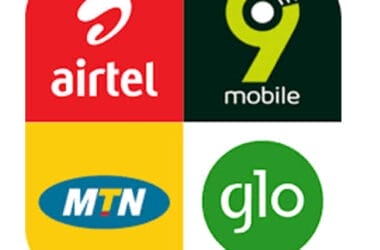Uber: N 3,998 GTB: N 5,697 @gtbank you think you’re doing me?
— Tobi (@MrLong_) January 4, 2016
Nigeria, especially the city of Lagos, should be one of the cities in the world where it is much easier to start a business like Uber’s. The market is enormously large, the number of individuals that would desire to be chauffeur-driven to meetings, lunch, events, malls, functions and other places are numerous and the spending power of the people is unsurprisingly high since only Lagos residents can pay One Million Naira to sit at a table at AY Show. You can’t try that in Ibadan or elsewhere.
Getting ‘Lagosians’ to pay for a service would not be impossible but it becomes extremely difficult if a service provider that has numerous competitors is making its own extremely difficult for people to use. This is the plight of taxi hailing app Uber in Lagos.
In 2014, Uber launched in Lagos with hiphop sensation Ice prince being the first to use the service. The unique feature of Uber is its ability to allow users request rides without bringing out their wallet since everything is cashless. But there’s a lil’ problem though, this is Nigeria where many citizens don’t fully trust online based businesses and services with their credit card/bank details. Ask Jumia and Konga.
Uber was making do with the very small proportion of Lagos residents that trust it with their credit card details until late last year when the Central Bank of Nigeria (CBN) introduced a back-breaking policy for businesses that run operations in foreign currencies. For individuals, there is now a limit to the value of international transactions that could be made and a new foreign spending cap emerged, compelling those that use Uber and other services that charge in US Dollars to rethink their activities. But CBN’s policy wasn’t the only setback to Uber’s operations in Nigeria.
Many Uber users discovered that they are incurring a secret charge when they use Uber and it could be as high as 20% of the fee they are paying Uber.
Uber: N 3,998 GTB: N 5,697 @gtbank you think you’re doing me?
— Tobi (@MrLong_) January 4, 2016
Investigation revealed it is the balance between the parallel market Dollar exchange rate and the rate being charged in the open market. This became a concern for many Uber riders who are now becoming uncomfortable with the fact that they are paying their taxi drivers in Dollars.
@Uber_Lagos@gtbank@cenbank I bet you can’t ride uber in London or Singapore and pay them in US dollars. They only try these things here
— Tomilola (@TeeHabibi) January 4, 2016
The last straw that probably broke Uber’s camel’s back in Nigeria was the decision of some Nigeria banks to block Uber transactions as confirmed by the company in a newsletter it sent to its users.
“We are aware that some riders have been experiencing widespread payment issues with the Uber app recently. We know you might have tried to get a ride but couldn’t due to this – sorry about that, we know that you depend on Uber for a reliable and efficient ride.”
According to Uber, a number of banks have specifically began to decline Uber transactions and so as a result, customers may have tried to request an Uber but received the following message: [your credit card ending xxxx has been deemed invalid. Please update your billing settings ] or an outstanding balance was left on the user’s account due to a payment decline.
“Cards issued by Stanbic IBTC, Diamond Bank, Skye Bank, UBA, amongst others are still accepting Uber transactions so feel free to include these as payment methods if you currently hold a card with one of these banks,” Uber said.
To appease its customers scale CBN’s policy hurdle and do away with the banks, Uber decided to roll out new payment options – cash and Paga.
If there is any lesson that Uber is learning (the hard way) in Nigeria, it is the fact that it is potentially disastrous to attempt to deploy a service that worked elsewhere in Nigeria without factoring the local market into its operations. Nigerians are still concerned about the safety of their credit card information and will be reluctant to reuse a service that charged them more than what is on the receipt even though it has an option of charging in local currency and integrating with Quickteller to effect the payment just as Emirates and other international companies are doing.
Uber’s frantic efforts to modify its payment options in Nigeria is because it knows what its users in Nigeria know. They know they have other options even though they know that Uber may be better. No matter how superior a service is, Nigerian customers would not hesitate to embrace another service that is more transparent in its billing and charges exactly what is on the receipt; much better if it allows them to pay in cash. The preferred service may be a renewed afro (previously known as Afrocab), the regular Lagos taxi drivers or a dying Easy Taxi.






